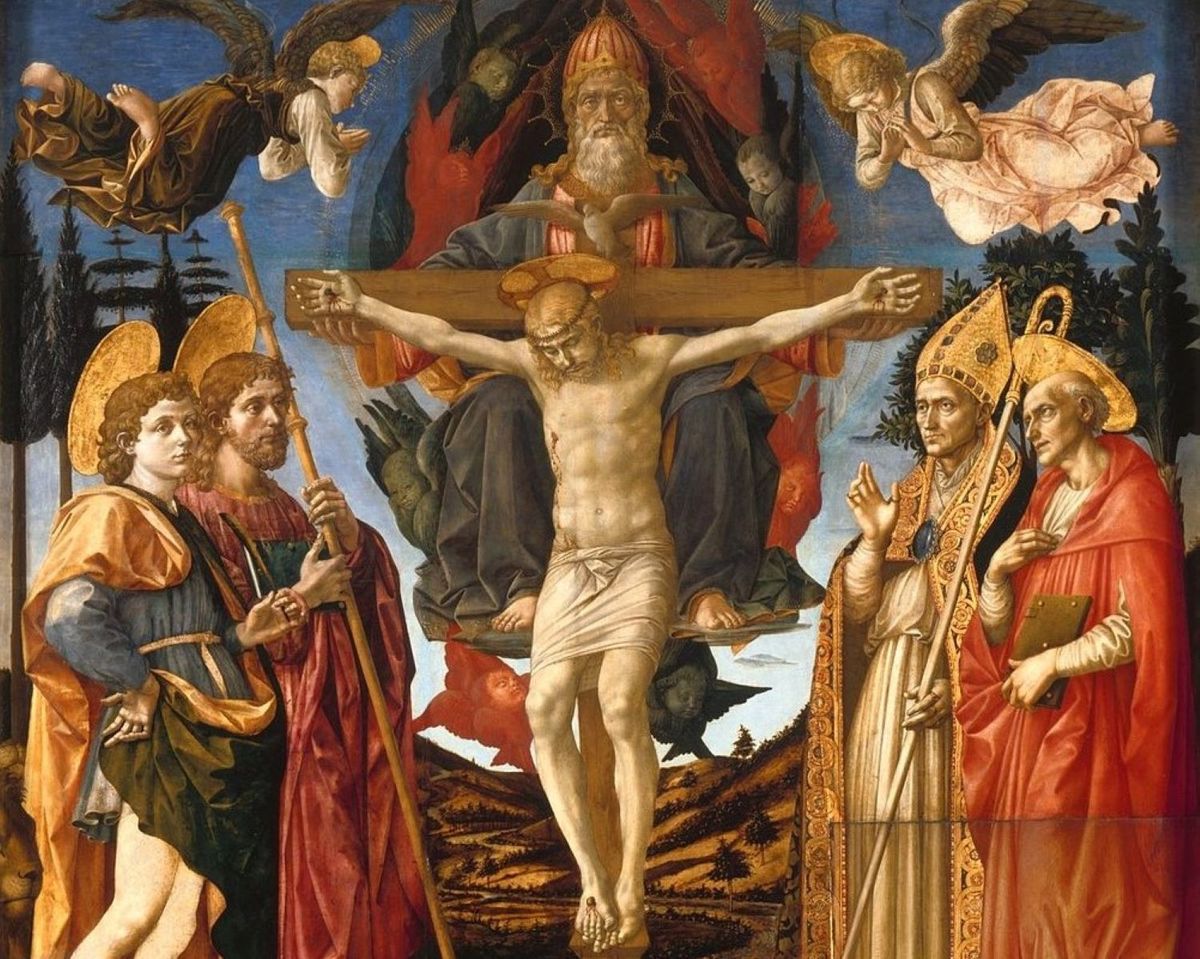* [
2:17]
Ps 69:10, changed to future tense to apply to Jesus.
* [
2:19] This saying about the destruction of the temple occurs in various forms (
Mt 24:2;
27:40;
Mk 13:2;
15:29;
Lk 21:6; cf.
Acts 6:14).
Mt 26:61 has: “I
can destroy the temple of God…”; see note there. In
Mk 14:58, there is a metaphorical contrast with a new temple: “I will destroy this temple
made with hands and within three days I will build another
not made with hands.” Here it is symbolic of Jesus’ resurrection and the resulting community (see
Jn 2:21 and
Rev 21:2). In three days: an Old Testament expression for a short, indefinite period of time; cf.
Hos 6:2.
The Gospel according to John is quite different in character from the three synoptic gospels. It is highly literary and symbolic. It does not follow the same order or reproduce the same stories as the synoptic gospels. To a much greater degree, it is the product of a developed theological reflection and grows out of a different circle and tradition. It was probably written in the 90s of the first century.
Other difficulties for any theory of eyewitness authorship of the gospel in its present form are presented by its highly developed theology and by certain elements of its literary style. For instance, some of the wondrous deeds of Jesus have been worked into highly effective dramatic scenes (
Jn 9); there has been a careful attempt to have these followed by discourses that explain them (
Jn 5;
6); and the sayings of Jesus have been woven into long discourses of a quasi-poetic form resembling the speeches of personified Wisdom in the Old Testament.
The fourth gospel is not simply history; the narrative has been organized and adapted to serve the evangelist’s theological purposes as well. Among them are the opposition to the synagogue of the day and to John the Baptist’s followers, who tried to exalt their master at Jesus’ expense, the desire to show that Jesus was the Messiah, and the desire to convince Christians that their religious belief and practice must be rooted in Jesus. Such theological purposes have impelled the evangelist to emphasize motifs that were not so clear in the synoptic account of Jesus’ ministry, e.g., the explicit emphasis on his divinity.
Nonsense. the language is clear, Listen, John 2:19 "Jesus answered and said unto them,
Destroy this temple, and in three days I will raise it up." now his explanation, John 2:21 "But he spake of the temple
of his body." this is plain and clear.
now the deciding factor, John 2:22 "When therefore he was risen from the dead,
his disciples remembered that he had said this unto them; and they believed the scripture, and the word which Jesus had said."
if they REMEMBERED WHAT HE SAID, "why say Acts 5:30 "
The God of our fathers raised up Jesus, whom ye slew and hanged on a tree."
this is the same Language, "The God of our Father", that Ananias of Damascus said about the Lord Jesus, listen. Acts 22:12 "And one Ananias, a devout man according to the law, having a good report of all the Jews which dwelt there," Acts 22:13 "Came unto me, and stood, and said unto me, Brother Saul, receive thy sight. And the same hour I looked up upon him." Acts 22:14 "
And he said, The God of our fathers hath chosen thee, that thou shouldest know his will, and see that Just One, and shouldest hear the voice of his mouth."
"
The God of our Fathers?", which he was referring to JESUS. because it was the Lord Jesus who "Chose" Saul, later Paul on the road to Damascus. for the term "chosen" here in Acts 22:14 is the Greek term, G4400 προχειρίζομαι procheirizomai (pro-chei-riy'-zo-mai) v.
1. to handle for oneself in advance.
2. (figuratively) to purpose.
[middle voice from G4253 and a derivative of G5495]
KJV: choose, make
Root(s): G4253, G5495
and this same term was used in Paul's third account of the same even on his way to Damascus before king Agrippa, listen to Paul's account.
Acts 26:13 "At midday, O king, I saw in the way a light from heaven, above the brightness of the sun, shining round about me and them which journeyed with me." Acts 26:14 "And when we were all fallen to the earth, I heard a voice speaking unto me, and saying in the Hebrew tongue, Saul, Saul, why persecutest thou me? it is hard for thee to kick against the pricks." Acts 26:15 "And I said, Who art thou, Lord?
And he said, I am Jesus whom thou persecutest." Acts 26:16 "But rise, and stand upon thy feet: for I have appeared unto thee for this purpose,
to make thee a minister and a witness both of these things which thou hast seen, and of those things in the which I will appear unto thee;"
the term "
Make" here is the exact same Greek word us by Ananias, G4400 προχειρίζομαι procheirizomai (pro-chei-riy'-zo-mai) v.
1. to handle for oneself in advance.
2. (figuratively) to purpose.
[middle voice from G4253 and a derivative of G5495]
KJV:
choose, make
Root(s): G4253, G5495
see, this word G4400 προχειρίζομαι procheirizomai (pro-chei-riy'-zo-mai) v. can be translated as "choose" or "Make". and the bible said, concerning what Ananias said, Acts 22:14 "And he said,
The God of our fathers hath chosen thee".
so without a doubt according to the bible, JESUS is the God of our fathers, meaning just as Peter said, Acts 5:30 "
The God of our fathers raised up Jesus, whom ye slew and hanged on a tree."
JESUS is the God of OUR FATHERS.
101G.

